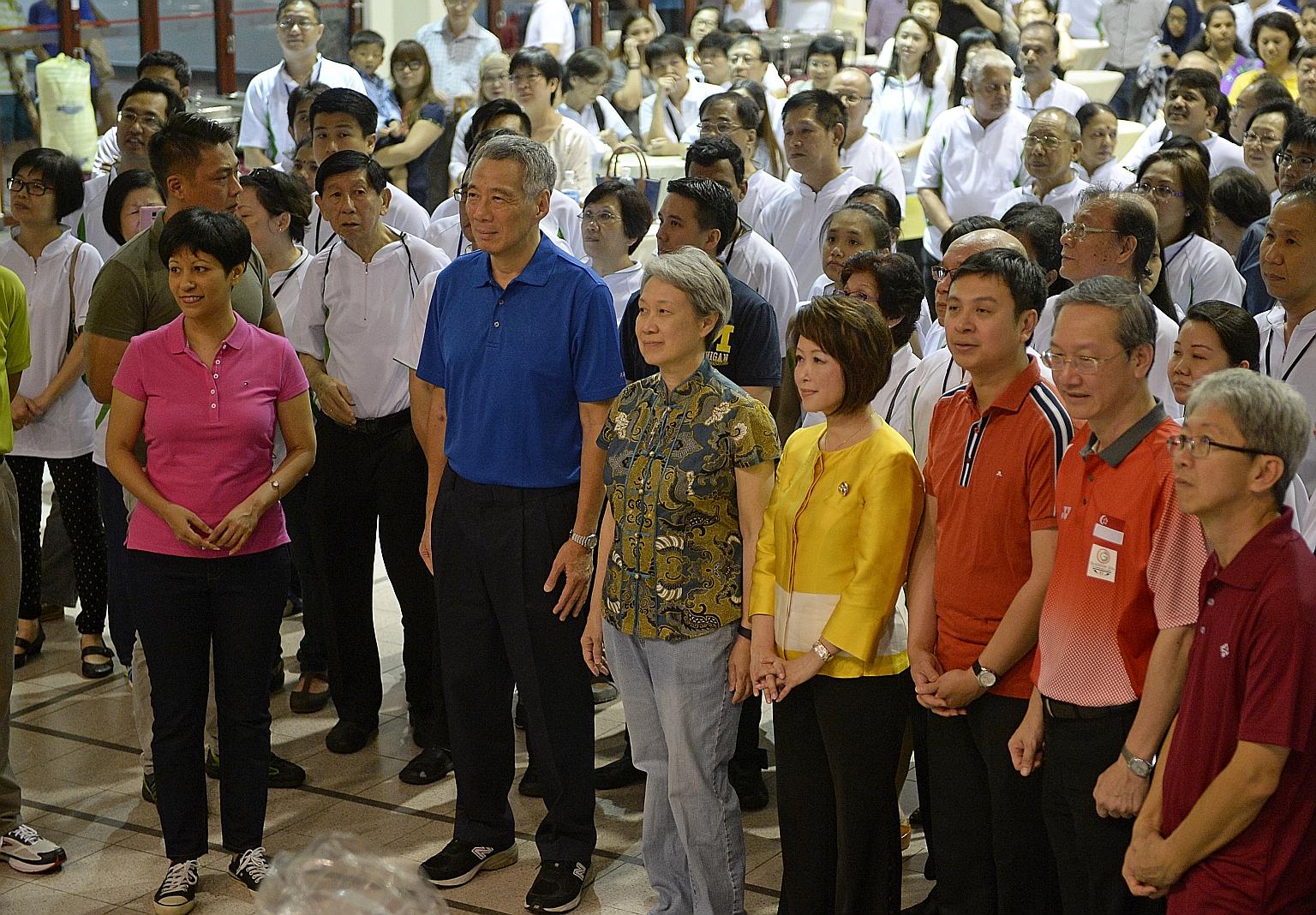PM hopes Chinese community will support changes
Sign up now: Get ST's newsletters delivered to your inbox

Ms Indranee (left) with PM Lee and his wife Ho Ching at the Remembering Our Founding Prime Minister Lee Kuan Yew event in Duxton, deep in the heart of the Tanjong Pagar ward, in April last year. In his speech, PM Lee recalled a Tanjong Pagar resident coming up to him and asking that he send a "bilingual minister" to the ward. The incident, he said, shows Singaporeans are "not yet completely race-blind".
ST PHOTO: MARK CHEONG
When Singapore's first prime minister Lee Kuan Yew died last year, Prime Minister Lee Hsien Loong visited Tanjong Pagar, the ward the late Mr Lee had always represented.
He was accompanied by Senior Minister of State Indranee Rajah, a Tanjong Pagar GRC MP who had been helping the older Mr Lee at the ward for many years. She also speaks Cantonese fluently.
Yet, one resident came up to PM Lee and asked that he send a "bilingual minister" to the ward.
The incident shows Singaporeans are "not yet completely race-blind", PM Lee noted in his Mandarin speech at the National Day Rally last night, as he explained to the Chinese community the importance of supporting the impending changes that would allow a non-Chinese president to be elected from time to time.
Similar sentiments can be found in other constituencies and every multiracial society, he added.
"It's human nature. We feel more comfortable interacting and working with people who share the same culture, language and ethnicity as we do," he said, adding that race and language play a role in elections too.
Hence, all things being equal, a minority candidate contesting in a Chinese-majority constituency is at a disadvantage, which is why group representation constituencies, or GRCs, exist to ensure minority representation in Parliament, he said.
It is also the reason he had talked about the need for changes to the elected president scheme in January this year, to ensure, among other things, that there is a non-Chinese president from time to time.
PM Lee said he accepted in principle the main recommendations of a specially appointed Constitutional Commission and the Government would respond to them in "due course".
A recent survey by Channel NewsAsia and the Institute of Policy Studies found most Singaporeans across all races would accept a prime minister or president of another race, but a significant number showed a strong preference for these leaders to be of their own race.
Said PM Lee: "Let's be honest with ourselves and deal with this squarely: For a non-Chinese to become an MP, it is not easy. For a non-Chinese to be elected president is even harder."
He has received some feedback, he said, in which people questioned the need to make provisions for minorities since Singapore is a multiracial society. Some also feel the election of a Chinese president is all right since the country has a Chinese majority.
But Singaporeans need to "face up to the reality of our multiracial context" and in the current system Singapore may not get a non-Chinese president for a long time.
"If so, this will weaken the sense of national identity among minorities and affect our unity. This is serious as it concerns our social cohesion, our multiracial society and our future," he said.
It is important to have a Malay, an Indian or someone of another race as president from time to time, as the role of head of state is a unifying symbol for Singaporeans, he added.
Former president S R Nathan is a good example, he said.
"Mr Nathan is Indian, but as president, he looked after the interests of all Singaporeans. He proactively reached out to all races and got to know them well."
He expressed the hope that the Chinese community will support the proposed constitutional changes "so that if we have a good minority presidential candidate, he can become the president and represent all Singaporeans''.
Ms Indranee later told The Straits Times she had encountered residents who occasionally asked if she spoke Mandarin: "This is just a natural desire on their part to communicate in the language they are most comfortable in."
She added: "We are multiracial but we are not homogenous. Human nature being what it is, things like race and religion do matter. What we have built goes against the natural grain. So we need to continue to support what we have built.


